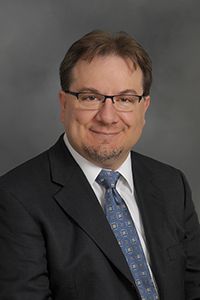Article
Insight Into why Some with Parkinson's Die Sooner
The results of a 12-year study show that several factors are clues into how long someone will survive with Parkinson's disease
The results of a 12-year study, published today in Neurology, show that a person’s age at onset is a major clue into how long they’ll survive with Parkinson’s disease, offering evidence that early diagnosis and intervention is key.
Of 230 study participants with Parkinson’s disease, 211 died by the end of the study. "Remarkably, time to death for these people took anywhere from two to 37 years from diagnosis so it's important we try to identify those risk factors that lead to an early death so we can find ways to increase a person's life expectancy," said Elin Bjelland Forsaa, MD, Stavanger University Hospital, Norway and member, American Academy of Neurology. Average time to death from the appearance of movement issues was 16 years, with an average age at death of 81 years.
More importantly, Forsaa’s research team found that with every 10-year increase of age at which symptoms began, the risk of an earlier death increased roughly 1.4 times. Additionally, those who experienced such psychotic symptoms as delusions or hallucinations were 1.5 times more likely toe die sooner than participants without such symptoms. Further, symptoms of dementia put patients at twice the risk for dying earlier than participants without such issues; males were 1.6 times more likely to die earlier from Parkinson’s disease than were females; and the worst scores on movement tests among patients with Parkinson’s disease were associated with higher risk of earlier death than the best scores. Consumption of antipsychotic drugs or drugs for Parkinson’s disease had no negative effect on survival.
"Our findings suggest that treatments to prevent or delay the progression of movement problems, psychosis and dementia in people with Parkinson's disease could help people live longer," said Forsaa.
What do you make of these findings? Will you change the way you treat patients based on their age of disease onset? Would you treat younger patients more aggressively? Would education in screening among primary care providers help? Tell us what you think!





